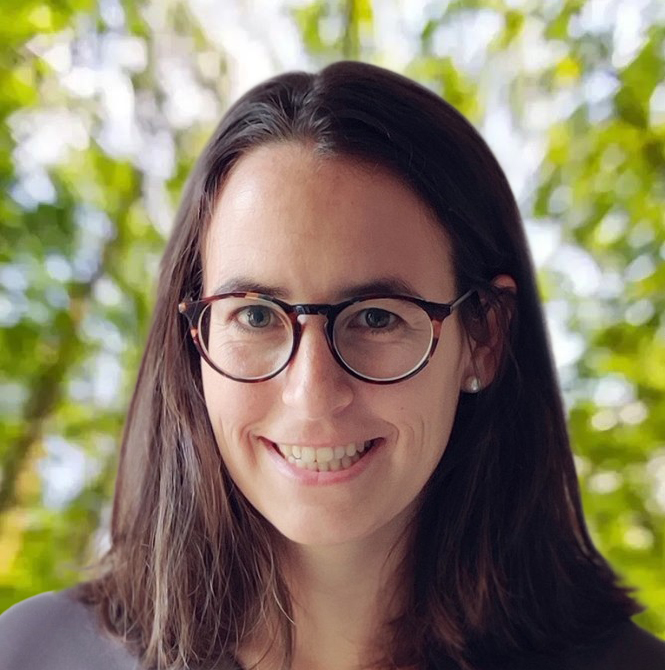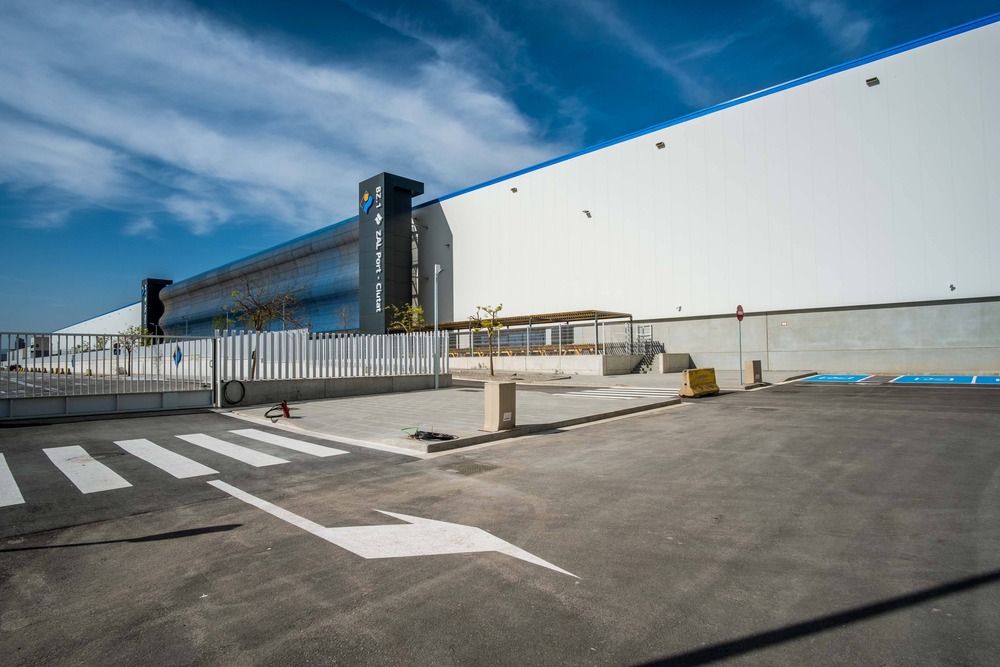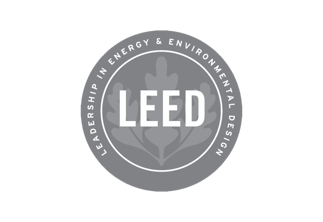
Currently, it is possible to demonstrate that your building is sustainable through sustainable certifications. We have already talked to you about these before, and today it is the turn of one of the most widely chosen evaluation tools worldwide, in which Spain leads the number of certifications at the European level and ranks fifth worldwide.
With more than 100,000 projects worldwide including buildings, neighbourhoods, communities and even cities, this is LEED certification and in this article we tell you what it is and what role it plays in the building industry in Spain.
What is LEED?
The LEED certification (Leadership in Energy & Environmental Design) is an assessment system that determines whether a building is sustainable in terms of reduced carbon emissions, conservation of resources and reduced operating costs. It seeks to prioritize sustainable practices and create healthier environments.
Developed in 1993 by the US Green Building Council in the United States, and finally implemented in 2000, it is now available for both new buildings and building rehabilitation, including all phases of the building life cycle. To achieve the certification, strategies are sought to obtain credits and also meet prerequisites and requirements.
These credits obtained are classified into categories, and each category relates to concerns regarding different environmental impacts. They are:
- Integrated process
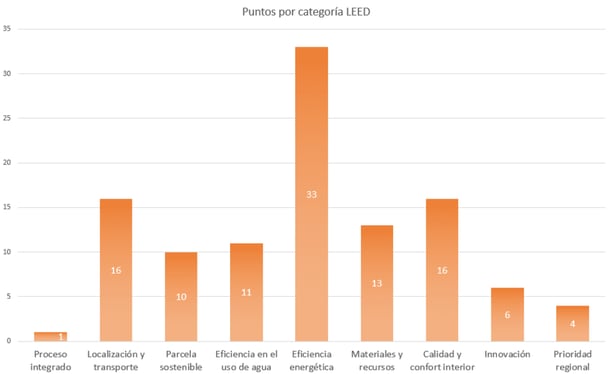
- Location and transportation
- Sustainable plot
- Efficiency in water use
- Energy efficiency
- Materials and resources
- Indoor air quality
- Innovation
- Regional priority
Based on the points obtained in each category, there are three certification levels: Silver 50 to 60 points, Gold 60 to 80 points and Platinum over 80 points.
LEED in Spain
Spain ranks first in Europe and fifth in the world in the list of countries and regions with LEED projects in 2021. "Spain continues to be a world leader in sustainability and green building, and is committed to building spaces and communities that benefit the people they serve," said Kay Killmann, GBCI Europe Director.
With a high demand for LEED-certified green buildings, which aim to be environmentally responsible and promote human health and well-being, Spain presented 100 projects during 2021. From the first building certified in 2006 to the present day, more than 700 projects have been certified throughout the country and there are 391 accredited professionals.
The 730 certified buildings belong to all types of constructions (such as offices, industrial, commercial, and institutional) and can be distributed according to LEED classifications in:
- Gold: 454 certifications
- Platinum: 141 certifications
- Silver: 109 certifications
- Certificates: 26
Since 2015, Zero Consulting has been part of the certification of more than 75 projects throughout Spain. We were the first to obtain LEED Gold certification in the LEED v4 Warehouse and Distribution Centres Worldwide version with the Logistik Gavilanes project, a newly constructed logistic warehouse.
Zero Consulting is LEED Proven Provider
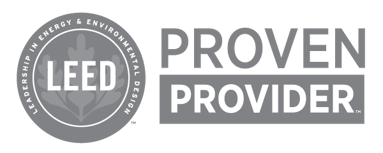
After a large evaluation process of the working procedures in the management of LEED certification projects, the GBCI (the entity in charge of the review of LEED projects), has awarded Zero Consulting the recognition as a LEED Proven Provider for LEED BD+C (Design and New Construction) qualification.
This designation seeks to encourage and reward high quality LEED projects in order to reduce extra work during project review, i.e. reducing the time to certification and providing quality assurance.
In this way, Zero Consulting and LEED work together to optimize the LEED certification experience. Furthermore, it allows us to continue investing in quality control and keep improving.
Future of LEED certification
As the certification system moves forward to be as concrete as possible about the requirements for certification and to address global concerns, LEED will become the guide for the building industry to achieve the decarbonisation that is urgently affecting today's environmental crisis. In this way, it promotes health, equity, and the responsible and healthy use of resources.
To achieve these objectives, the USGBC constantly reviews the tool to continue with what works well and to improve and adjust what can be optimized. The principles of the future of certification can be summarized as:
- Scale for the greatest impact globally, as both the problems and their solutions affect us all.
- Decarbonise the building industry to reflect the urgency of the climate crisis to achieve and align with the Paris Climate Agreement 2030 and 2050 targets.
- Inspire and reward adaptive and resilience in the building industry by identifying climate change risks and implementing strategies based on that.
- Investing in human health and well-being, where the use of healthy materials is encouraged and a healthy indoor and outdoor environment is ensured.
- Create environments where diversity, equality and inclusion thrive. Alliances are the key.
- Support flourishing ecosystems through regenerative development practices, to work in harmony and promote the life of all beings.
LEED certification continues to evolve to keep adapting to market needs and to address environmental crisis issues, while seeking to align with global guidelines in terms of sustainable goals, such as the Paris Climate Agreement or ESG criteria. The path to being more responsible with the world we inhabit and leaving it in the best conditions in terms of health and well-being for future generations is long, but the commitment demonstrated in Spain and the world is promising.
If you want to be part of this evolution and would like your building to obtain LEED certification, contact us, and we will be able to advise you on the whole process of obtaining it.
